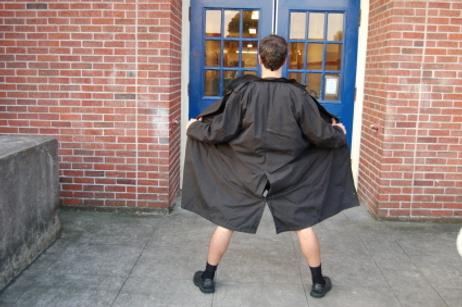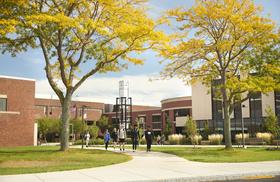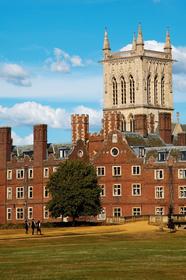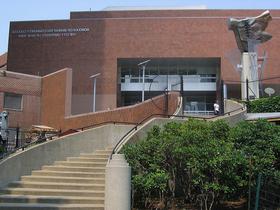After serving time for their crimes, sex offenders must register their residence, but should more steps be taken to protect society from them? According to a Michigan community college, the answer is a resounding yes.
Lake Michigan College, a community college in Benton Harbor, Michigan, made news recently when it announced that it is banning anyone who is registered as a sex offender of children from enrolling in courses.
The Chronicle of Higher Education reports that the college decided to make the new rule after a student who is a registered child sex offender identified himself as such during course registration in October. The college decided not to let the student register and to suspend other students who are registered sex offenders of children. The college identified three currently enrolled students who are also registered child sex offenders by using a public sex-offender registry, and it suspended these three students in February.
Registered Offenders Cannot Attend On-campus Classes
The college has declared that students who are convicted of sex crimes against children are “suspended” from being on the college campuses until they are no longer required to register as child sex offenders and are no longer on probation or parole. Michigan’s Herald Palladium notes that under Michigan law, those who commit sex crimes against children are required to register themselves as such for either 25 years or life. Thus, these “suspensions” are more like expulsions. Registered child sex offenders will still be allowed to take online courses through the college.
No Official Rule Yet
College spokeswoman Laura Kraklau told Michigan’s Herald-Palladium that “There is not yet a (formal) policy regarding this issue.” The college administrators suspended the three students in February by referring to the "other prohibited misconduct" section of the student conduct code.
Milestone Movement
The Michigan Herald-Palladium reports that U.S. Department of Education officials “said they did not know if any other college or university bans people convicted of committing sex crimes against children” and that “an official of a national association of college registrars and admissions officers also said he was not aware of any other such college policy.”
Kraklau told Michigan news station WSBT that she found that “a couple of other community colleges have similar rules and policies,” but she did not name specific campuses.
This video reports on efforts in Maryland to prevent sex-offenders from enrolling in public schools in the state.
Is the Policy a Good Idea?
While the policy seems unprecedented, there are certainly two sides to the issue. Does the college have the right to protect their students from sex offenders, or should these sex offenders be allowed to rejoin society and take classes to improve their vocational training and future career potential?
Crimes from childhood could haunt a person forever
Miriam Aukerman, a lawyer with Legal Aid of Western Michigan, told the Herald-Palladium that the policy seemed “short-sighted.” Aukerman expressed concern that the policy could prevent students who are required to register as child sex offenders because of “Romeo and Juliet” cases – situations in which a teenager who is 17 is prosecuted for having sexual relations with a 15-year-old. (The age of consent in Michigan is 16.)
Aukerman also noted that some people are required to be on the child sex offenders’ registry because of crimes they committed when they were as young as nine years old. The Herald-Palladium quotes Aukerman as saying that "The sociological research shows that juvenile offending and 'Romeo and Juliet' offending is not predictive of subsequent sexual misconduct. It's very different from what we think about as the kind of predatory behavior that people are concerned about.”
Aukerman believes that colleges and universities should be making “individualized decisions” and looking at “specific circumstances” rather than upholding blanket policies.
Not the college’s job to evaluate whether a student is potentially dangerous
Barmak Nassirian, associate executive director of the American Association of Collegiate Registrars and Admissions Officers, told the Herald-Palladium that his organization believes that a college may be overstepping its bounds when it begins trying to determine whether a student is emotional, mentally, or physically fit to enroll on its campus.
“We tend to believe,” Nassirian explained, “that the judicial system and the criminal justice system are the appropriate venues for working out who ought to have access to higher ed and who should not if it is a matter either of privilege or a matter of safety.”
Community colleges and four-year-universities, Nassirian continued, should concern themselves with “assess[ing] people academically and reach[ing] out to them” and should “leave these other matters to other competent authorities.”
This video reports on a sex-offender who enrolled at a college.
College wants to protect “those it serves”
Lake Michigan College wrote on its Facebook page that it believes the decision it made is “in the best interest of those we serve.” Kraklau said that daycare is provided at two of the community college’s four campuses and that children are regularly present on the other campuses for special classes or activities.
Only time will tell if this Lake Michigan College policy will become a watershed for similar actions across community college campuses.
Questions? Contact us on Facebook @communitycollegereview.















